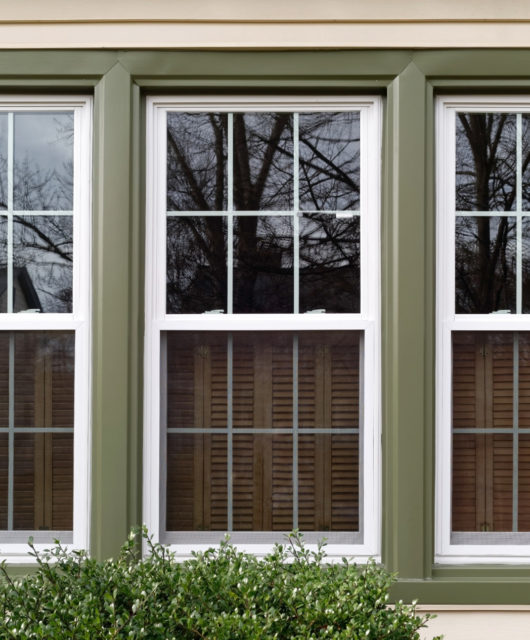Homeowner’s Guide to Going Solar

Have you been thinking about making a solar power investment for your home? Are you unsure how to make the switch? If so, keep reading for some great advice that will make the process as painless as possible.
Table of Contents
Benefits of Going Solar
You might have heard that switching to solar energy is a good idea, but you might also need a little more convincing before you go ahead and invest yourself. The truth is that there are lots of reasons why you ought to consider going solar, including the following:
Save Money
First, switching to solar energy can help you save a lot of money. Many people notice significant reductions in their electricity bills. Some even end up getting money back from the electric company.
Pay Off Your Panels Fast
Because you’re able to save so much money when you go solar, it’s often possible to pay your panels off in a short time frame. Most people pay them off within 10 years, and people in very sunny places (like Hawaii) can pay them off in as little as five.
Increase Home Value
Making your home more energy-efficient will help to increase its resale value. Even if you don’t have plans to move anytime soon, this is still something worth considering. Who doesn’t want to get additional money when they sell their house?
Help the Planet
Of course, solar energy is also much better for the planet than regular electricity. If you’re looking to reduce your carbon footprint and minimize your environmental impact, making the switch to solar power is a smart move to consider.
How to Switch to Solar
Are you interested in enjoying all these great benefits? If so, then it’s time to switch to solar. Here are the steps you need to take today to get started:
Choose Your Panels
First, you need to decide what kind of panels you want for your home. There are two main options from which you can choose:
- Crystalline silicon
- Thin-film
Thin-film panels are often more affordable than their silicon counterparts. At the same time, though, they also tend to produce less electricity overall.
There are lots of other factors you should consider when shopping for panels. The list includes things like the price per watt calculation, your location, the average temperatures in your area, and the average amount of sunlight your home gets each day.
Find an Installation Company
Once you’ve chosen panels, your next job is to find an installation company that can set them up for you. Remember, solar panel installation is not a DIY project. You need to have professionals come to your house and install them.
This ensures the project gets done correctly the first time around. It also saves you from accidentally injuring yourself during the installation process.
Sit Back and Enjoy
Another great thing about solar panels (beyond the list of benefits outlined above) is the fact that they’re very low maintenance. Once you invest your solar panels and have them installed, you can often set them and forget them.
You don’t have to worry about making adjustments to them or scheduling regular repairs. Because there aren’t any moving parts, it’s unlikely that anything will go wrong once they’ve been installed by an expert.
How to Save on Your Solar Power Investment
Perhaps you’re on board with going solar, but the idea of spending thousands of dollars on solar panels could still make you a little nauseated. If this sounds like you, keep these tips in mind to save money on your solar panels:
Start with Energy Efficiency
The more energy-efficient your house is before you get started, the better off you’ll be. If you can maximize your energy efficiency, you might be able to reduce the number of solar panels you need to power your home. This allows you to save some money right off the bat.
Choose the Right Installer
Don’t just work with the first installation company you find online. Reach out to and get bids from several different companies before making a decision. Taking the time to do this ensures you get the best rates and helps you to make the right decision for your budget.
Take Advantage of Tax Credits
Make sure you take advantage of the tax credits that are available to you. After having solar panels installed, you can qualify for federal tax credits, and there should be state credits available, too. Taking advantage of these will help you to save more money on your annual tax bill and get more back in your return.
Ease Your Way in with a Portable Generator
If you’re interested in experiencing the benefits of solar but still aren’t quite ready to invest in panels on your roof, a good compromise could be starting with a portable solar generator. This gives you a chance to harness the benefits of the sun but in a lower-stakes way.
According to the folks at https://PoweredPortableSolar.com, you can get a lot of power from a solar generator. This option is also much more affordable than jumping right into solar panels.
Go Solar Today
At first, the idea of a solar power investment might have seemed way too daunting for you. Now that you know more about what it entails, though, and how you can save money on the process, are you more interested in moving forward with going solar?
If you’re ready to take the plunge, follow the guidelines laid out above. They’ll simplify the process and help you start saving money on electricity in no time.
Do you want to learn more about ways that you can update your home and make it more energy-efficient? If so, check out the Home/DIY section of our site today for lots of other great resources.









